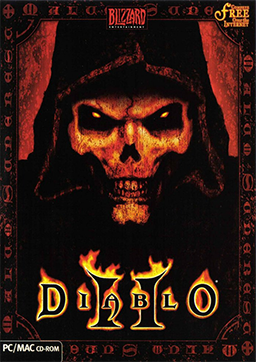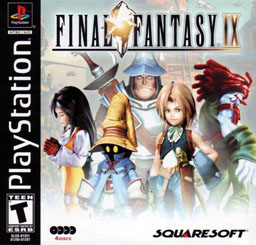Apologies to the half dozen or so people who've actually read these. This week has been extremely busy.
Even though I spent a significant portion of the preface hyping up 2000 as the final salvo in the N64/PlayStation war, the truth is, that war had already been won. The PlayStation heavily out preformed it's counterpart after 1998, and what should have been an awesome, back and forth, ultra competitive year for consoles was sort of a disappointment. This, combined with what should have been the glorious debut of the Dreamcast, left gamers in the first year of the new millennium sort of confused and unsure of the future of the medium. Despite all that, there were still some seriously good games.
The Sims
Release Date: February 4, 2000.
Platform: PC
ESRB Rating: T
Developer/Publisher: Maxis/Electronic Arts
GameRankings: 89.8%
Completely Arbitrary Personal Score: 6.9/10 (Decent)
The Sims was, more or less, an experiment. What on the surface seems like a silly idea (and also possibly a symptom of a burgeoning American addiction to reality TV), the game works only because of it's overly kitschy vibe and overall suburban style. That is to say, it's extremely off putting to slowly torture your Sims with what sounds eerily like Home Shopping Network background music playing. The endlessly strange gibberish language the characters speak in is more than a little endearing, as well. I, at one time, wanted to be an architect, so the home design mini game was a blast. Yes, I am very lame.
Perfect Dark
Release Date: May 22, 2000.
Platform: Nintendo 64
ESRB Rating: M
Developer/Publisher: Rare/Nintendo
GameRankings: 95%
Completely Arbitrary Personal Score: 8.3/10 (Good)
Perfect Dark, GoldenEye's spiritual successor, was not as big a leap forward for the FPS as the aforementioned Bond shooter was (hooray, multiplayer bots!) That being said, it was better. Rare, it's creativity unbound from the 007 canon, delivered a Ghost in the Shell inspired futuristic dystopia. The only thing holding back PD from true greatness was the Expansion Pak required to play the campaign. Truly a strange decision, although one that did manage to pay off. Most people bought it for the multiplayer, which makes PD one of the first successful strictly multiplayer console games.
Diablo II
Release Date: June 29, 2000.
Platform: PC
ESRB Rating: M
Developer/Publisher: Blizzard Entertainment
GameRankings: 88.58%
Completely Arbitrary Personal Score: 9.5/10 (Great)
The original Diablo, while extremely fun, was pretty much standard hack n slash, dungeon crawling fare. The story was threadbare at best, the character selection was generic and uninteresting, and the whole thing ended right when it seemed to have found it's groove. Just not good enough to make this top 100 list. D2, however, is one of the most influential MMOs in history, if only because a significant amount of it's design was used in the juggernaut that is World of Warcraft. Unlike WoW, Diablo 2 was (and still is) free to play online. Seriously. Thousands of people still play this.
But what separates Diablo from Warcraft is not solely the fact that Warcraft isn't just WoW, but a series of superior games made before 2004, but the fact that the Diablo game world is much darker and more interesting than Warcraft's. Wonderfully creepy art design, balanced gameplay, superb audio design and a legitimately interesting premise makes Diablo 2 one of my favorite games in history, and the perfect culmination of Blizzard's 2D 90s gaming legacy. A great expansion didn't hurt, either.
The Legend of Zelda: Majora's Mask
Release Date: October 26, 2000.
Platform: Nintendo 64
ESRB Rating: E
Developer/Publisher: Nintendo EAD
GameRankings: 91.92%
Completely Arbitrary Personal Score: 8.9/10 (Very Good)
 | |
| Behold! A direct sequel! In the Zelda franchise! The rarest of all things. |
Convoluted split timelines aside, Majora's Mask had one of the more ingenious plot structures of any game in it's time, and that alone makes it worth inclusion. Not to mention the fact that it's a Zelda game, which, almost by default, means it's fantastically fun to play.
Final Fantasy IX
November 14, 2000.
Platform: PlayStation
ESRB Rating: T
Developer/Publisher: Square/Square EA
GameRankings: 93.32%
Completely Arbitrary Personal Score: 8.6/10 (Very Good)
Final Fantasy IX (or 9) was the last of the PlayStation trilogy of Final Fantasy games, arguably the most successful and greatest era in the series' North American history. Fittingly, FFIX has more akin to the FF's of old, in it's setting, character design and plot. It's more high fantasy than sci fi, as opposed to VII and VIII. There's not a whole lot else I can say about FFIX. I like it, probably just as much as I do VIII, but I don't feel the same sort of devotion towards it that I do VII (or even IV or X), but still. Great game. Possibly the best of it's year.




No comments:
Post a Comment